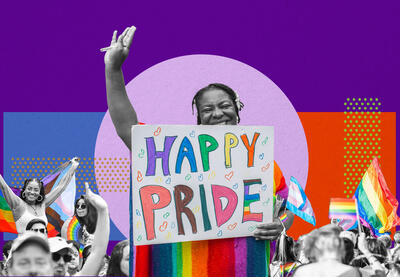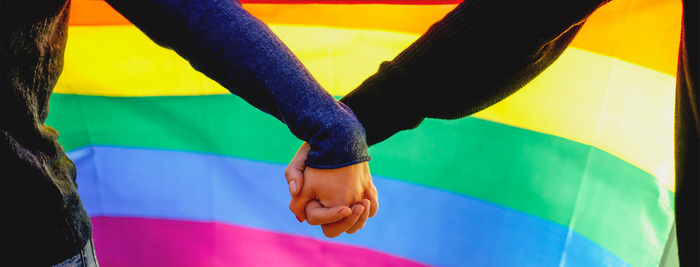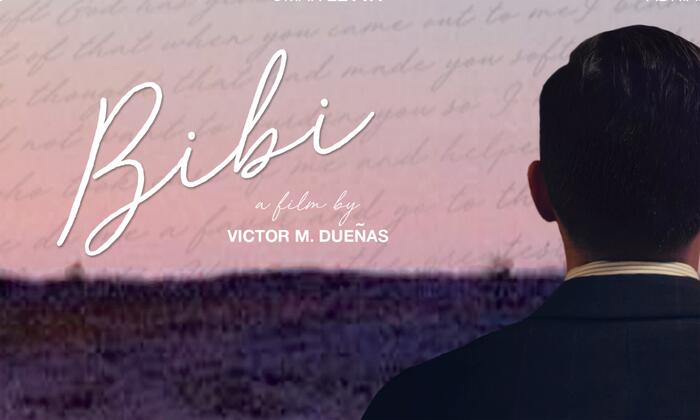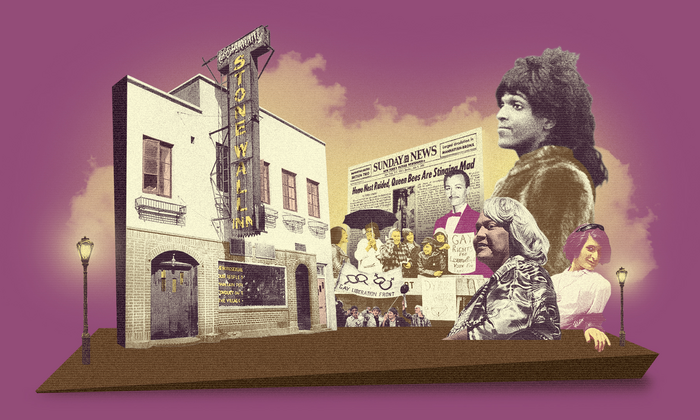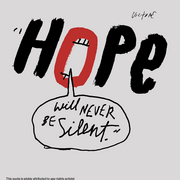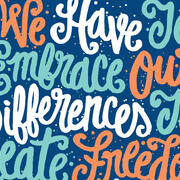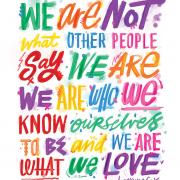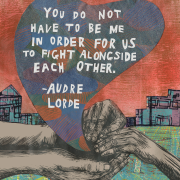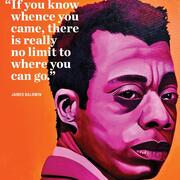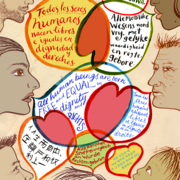As we celebrate and uplift all identities of the LGBTQ+ community, we honor those who have been part of the long struggle for civil rights and inclusion, recognizing the progress that has been made toward equality. And we commit to the fight to ensure that everyone can live with dignity and have their full human rights respected.
To LGBTQ+ young people:
“However you express yourself is valid; your experience is valid. You are loved regardless of what you hear in the news and media. There are people fighting for our community every day, and though some days may feel hopeless, please know that you bring a beautiful uniqueness to the world that nobody else does.”
—Nikole Parker, transgender activist, from Dear Young Person, You Are Valued
LGBTQ+ children and families deserve the right to safe, affirming and inclusive schools and communities. But discriminatory laws and censorship policies across the nation threaten the rights and well-being of LGBTQ+ people. Children and families are being targeted, and LGBTQ+ histories and experiences are being misrepresented and erased. The insidious combination of racism and queerphobia can seriously affect the mental health of our Black, Indigenous and other LGBTQ+ youth of color, especially amid the political attacks on human rights through efforts to control bodily autonomy, including reproductive rights and identity. In this hostile environment, inclusive education is essential to ensuring an inclusive democracy.
We offer the following resources on inclusive education practices and recommendations for being an ally. We encourage parents, caregivers, educators and community members to support the rights of all children to safety and representation. Advocate for the LGBTQ+ individuals and families in your communities.
[Updated June 2024]
Resources
Articles and LFJ Magazine Feature Stories
Pride Month 2024: How to be an Effective Ally for the LGBTQ+ Community (2024)
Allies can be a powerful source of support for the LGBTQ+ community. Three components are commonly cited by LGBTQ+ people for effective allyship: being accepting, having humility and taking action. This SPLC Hopewatch short article provides some suggestions to help ensure those components are part of your allyship.
Building a Just Future (2023)
In this Learning for Justice magazine feature, four transgender high school activists courageously share their stories and explain how educators and allies can help them amid the hostile attacks on their human rights.
A Refuge for LGBTQ+ Young People (2023)
This magazine feature highlights how student-run Gender and Sexuality Alliance (GSA) clubs are a federally protected space for young people to survive and thrive in the increasingly hostile anti-LGBTQ+ climate in schools and across the country.
Dear Young Person, You Are Valued (2023)
In this magazine Q&A, activists Nikole Parker and Brandon Wolf emphasize the need for each of us to advocate for safer schools where all young people are valued.
Changemakers for an Inclusive and Just Future (2023)
In this installment of LFJ magazine’s Youth Activism column, LGBTQ+ youth activists from the ChangeMakers Leadership Institute advocate for inclusive education and community resilience in the face of oppressive legislation in Florida.
Inclusive Education Benefits All Children (2022)
This magazine feature emphasizes that in confronting attacks on LGBTQ+ students’ rights to representation and safety in public education, we hold firm to creating inclusive and affirming learning spaces.
Visibility Is Power (2022)
In this installment of LFJ magazine’s Why I Teach column, elementary educator Skye Tooley emphasizes the power of LGBTQ+ visibility in fostering positive spaces of understanding and empathy where all students feel visible and accepted.
Gender-Affirming Care: What It Is and Why It’s Necessary (2022)
The willingness to learn, the active step of acknowledging and affirming LGBTQ+ students, and empathy in recognizing the difficulties for these young people help create safer spaces for trans and nonbinary children.
My Pride Is Black, My Juneteenth Is Queer (2022)
The celebration of Pride and Juneteenth offers an opportunity for reflection on intersecting identities and highlights the need to support and make space for Black LGBTQ+ youth.
Talking With Students About Transgender Athletes (2021)
As lawmakers across the country continue to restrict the rights of transgender people—particularly transgender young people—educators can take this moment to start a conversation about transgender identity, justice and ways to take action. This article by transgender/nonbinary educator Skye Tooley provides recommendations and resources.
Supporting Nonbinary Educators in the Workplace (2019)
In this Q&A, 2019 GLSEN Educator of the Year Ace Schwarz explains how educators can support nonbinary colleagues and create more inclusive school environments.
They Didn’t Back Down (2019)
Florida educators were targeted for standing up for LGBTQ+ students. This 2019 article examines how they stood strong.
Let’s Talk About Nonbinary (2019)
This article offers a helpful description of what it means to be nonbinary as well as some concrete first steps for how you can support nonbinary young people.
Is “Queer” OK To Say? Here’s Why We Use It (2019)
Queer: pejorative or reappropriated term? Yes and yes. But after members of our community questioned our use of the word, we want to explain.
The Book of Matthew (2018)
Matt Shepard died decades ago, but his name lives on in stories, on stage, in the law—and in the classroom.
Nothing About Us Without Us Is for Us (2017)
Youth activist Hazel Edwards recounts her journey from being pushed out of school to teaching her district how to serve transgender students.
Honoring LGBTQ Voices During Hispanic Heritage Month (2017)
Too often, curricula and media position racial and sexual identities as either/ors. Hispanic Heritage Month is an opportunity to change that.
Being There for Nonbinary Youth (2016)
Many nonbinary youth experience bullying and discriminatory policies at school—sometimes compounded by a lack of support at home. This article and its accompanying toolkit delve into some strategies for supporting nonbinary young people at school.
(Toolkit)
LGBTQ and Muslim are Not Dichotomous Identities (2016)
Many people in United States hold the mistaken belief that LGBTQ people and Muslims are fundamentally at odds. As educators, we can teach the reality that LGBTQ Muslims exist and honor the voices of this identity group.
Sex? Sexual Orientation? Gender Identity? Gender Expression? (2015)
Knowing the difference can make all the difference to students who do not conform to binary norms.
Seeing All Identities of LGBTQ Youth of Color (2015)
Giovanni Blair McKenzie gave this speech about supporting LGBTQ+ youth of color and “interlocking forms of discrimination” at the 2015 Human Rights Campaign’s Time to THRIVE conference.
Caroline Is a Boy (2005)
This article powerfully examines the challenges faced by transgender and gender-nonconforming students in schools. With the current increase in politically motivated legislation targeting the rights of transgender students and rolling back progress for more-affirming school spaces, these challenges continue to be a reality today.
Publications and Multimedia Resources
[Podcast Series] Queer America
From Learning for Justice and hosts Leila Rupp and John D'Emilio, this 13-episode series takes listeners on a journey that spans from Harlem to the Old West frontier, revealing stories of LGBTQ+ life we should have learned in school.
[Film Kit] Bibi
The film Bibi tells the story of a Latinx father and son who can talk about anything in the letters they pass back and forth when conversation seems too much. When Ben, affectionately called “Bibi” by his father, hands his father a letter that reads, “I’m gay,” their relationship is challenged to its core.
Best Practices for Serving LGBTQ Students
(Note: This guide is being revised, and a new version will be published in 2024.)
This guide provides resources for making curriculum and policy decisions that include LGBTQ+ students and prepare all students to thrive in a diverse democracy.
The LGBTQ Library
This booklist, compiled to accompany the current Best Practices for Serving LGBTQ Students resource guide, offers a good starting place for educators who need to diversify their curricula and classroom libraries to include more LGBTQ+ identities.
[Webinar] LGBTQ Best Practices: Classroom Culture and Curriculum
Based on our publication Best Practices for Serving LGBTQ Students, this 2018 webinar models how to create an inclusive classroom culture and build an intersectional curriculum that incorporates queer history and perspectives.
[Webinar] Gender Savvy: Creating an Inclusive School Climate
In this 2016 webinar, LFJ teams up with Johanna Eager from Welcoming Schools to exploring how to better support LGBTQ+ students and colleagues at school.
[Webinar] Let’s Talk! Discussing Gender in the Classroom
In this 2016 webinar, LFJ teams up with Gender Spectrum to help educators think beyond the gender binary and to create gender-inclusive classrooms.
Understanding and Teaching LGBTQ+ History
Queer People Have Always Existed—Teach Like It (2021)
Educators must commit to undoing the systemic silencing of queer figures throughout history. Here are some ways to more inclusively explore the past.
Teaching Stonewall (2019)
Stonewall’s true history remains largely forgotten—and often unknown among young people. In the cultural imagination, it remains shrouded in myth. But the true Stonewall story can be taught. This article explores how—and why.
Black LGBTQ History: Teachers Must Do a Better Job (2017)
Our curricula should not present a narrow, monolithic narrative about Black history that omits certain voices and identity groups, such as LGBTQ+ individuals.
[Lesson] Bayard Rustin: The Fight for Racial Justice and Gay Rights
This lesson centers on the invaluable work and activism of Bayard Rustin. Rustin was not only dedicated to orchestrating the civil rights movement; he was also one of Dr. Martin Luther King Jr.’s closest advisors, and the organizer of the 1963 March on Washington.
[Lesson] James Baldwin: Art, Sexuality and Civil Rights
In this lesson, students will revisit the life of James Baldwin, an African-American literary writer and critic, as well as an icon for civil and gay rights.
[Film] Hawaiians Live in Aloha
This animation sequence from the film A Place in the Middle explains traditional Hawaiian gender roles and their conception of māhū, or the middle. Kumu Hina, a teacher at Hālau Lōkahi—a public charter school in Hawaii—also discusses the history of colonization and its impact on Hawaiian culture.
StoryCorps: Stonewall Riots
In this audio segment from the oral history project StoryCorps, Michael Levine shares his memories of the 1969 Stonewall Riots with his friend Matthew Merlin.
StoryCorps: Gay in the Marine Corps
In this audio segment from the oral history project StoryCorps, former Marine Kendall Bailey talks to his friend Don Davis about his experience when a staff sergeant discovered that he was gay.
Paragraph 175
Paragraph 175 was the long-standing German law that criminalized sexual activity between men. This version of the law, passed in 1935 under the Nazi regime, imposed harsher restrictions and led to a dramatic rise in the number of people prosecuted.
External Content and Organizations
- Safe & Healthy Schools Program from Equality Florida
- Guide to Being an Ally to Transgender and Nonbinary Young People from the Trevor Project
- Sexual Orientation Resources from the Trevor Project
- Resources About Gender Identity from the Trevor Project
- LGBTQ+ Terms and Symbols Glossary from the Matthew Shepard Foundation
- Being an LGBTQ+ Ally report from the Human Rights Campaign Foundation
